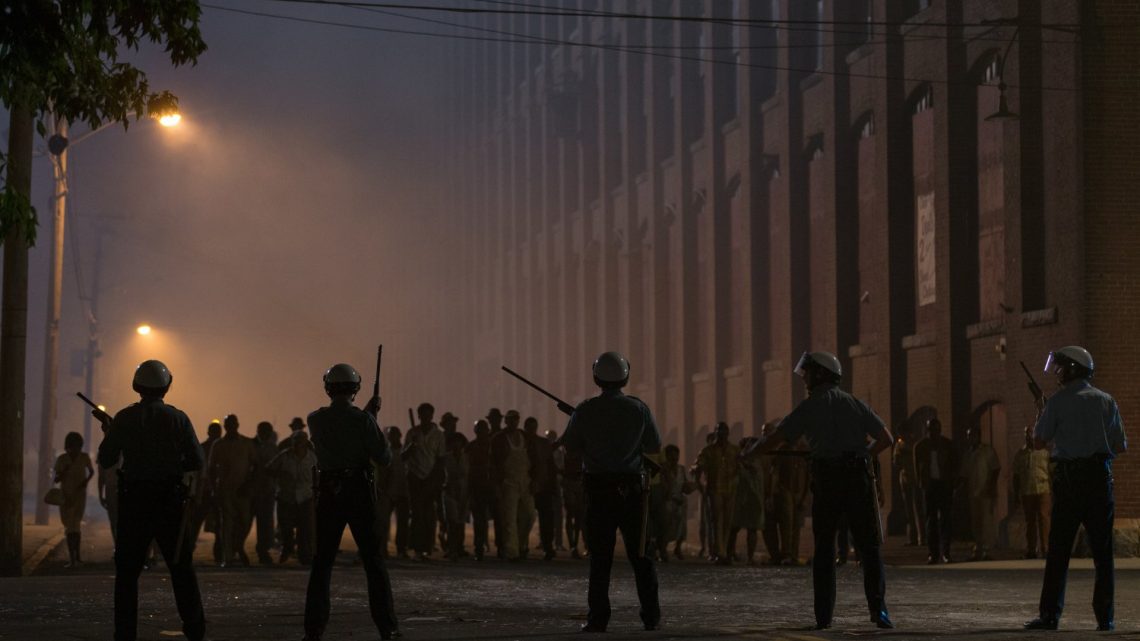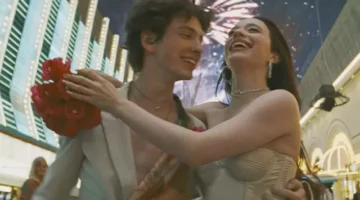Tropic Sprockets / Detroit
By Ian Brockway
Kathryn Bigelow (Zero Dark Thirty) has crafted a wonderful film that hits us in the solar plexus with “Detroit,” about a horrid and shameful time in history, specifically the riots of 1967. The narrative is magnetic and compelling from start to finish, but it is also disturbing, anxiety-making and disquieting as it should rightly be. Sadly, this is life as lived in 1967 Detroit.
The film begins when a predominately white Detroit police force raids an impromptu drinking party at the Economy printing office on Twelfth Street. Men and women are rounded up and treated with brutality. Seeing excessive force, a riot commences. Fire is everywhere. The police become incensed by the black community and shoot young men in the back.
The narrative then shifts to the Algiers Motel, where Carl Cooper (Jason Mitchell) fires a starter pistol through the window. The police think a sniper is on the roof and begin to advance on the building. Carl panics and rushes to the door. An officer shoots him with a shotgun where he falls dead. Blood covers the floor.
An officer Krauss (Will Poulter) who previously shot and killed a looter in the back, walks upstairs and discovers a black marine with two white girls engaged in lovemaking. He is disgusted and orders nine men along with the two girls to plaster themselves against the wall downstairs. The sociopathic Officer Krauss begins to severely abuse the teens both psychologically and physically, cracking them on the head with his rifle as well as beating and choking them. He then vows to shoot and kill them if they do not confess the supposed sniper’s identity.
This is a harrowing film very much like “Midnight Express” and “The Stanford Prison Experiment.” Some incidents are shock-inducing and sickening, yet the director is to be commended for showing the ugliness and refusing to pull away. Adding to the nervousness is the camera itself in perpetual motion, giving us the feeling that we are ourselves implicated in by spectatorship and need to act against the horror that we witness.
A highlight of the film is the excellent acting by Algee Smith who plays Larry Reed, a headliner for the vocal group The Dramatics who carries on with his art, despite being subjected to great violence by the abhorrent Krauss. John Boyega of “Star Wars: The Force Awakens” appears as a security guard whose hands are tied amidst such base insanity.
Perhaps the message of “Detroit” is that creativity and expression are the lasting beacons to all events repulsive and cruel. This is evidenced by a terrific animated sequence at the beginning of the film featuring the exquisite paintings of Jacob Lawrence, who was known for depicting the day-to-day life of African Americans.
“Detroit” is refreshingly uncompromising; it forces us to mindfully confront our racial demons not just as a country, but universally humans.
Write Ian at [email protected]
[livemarket market_name="KONK Life LiveMarket" limit=3 category=“” show_signup=0 show_more=0]






No Comment